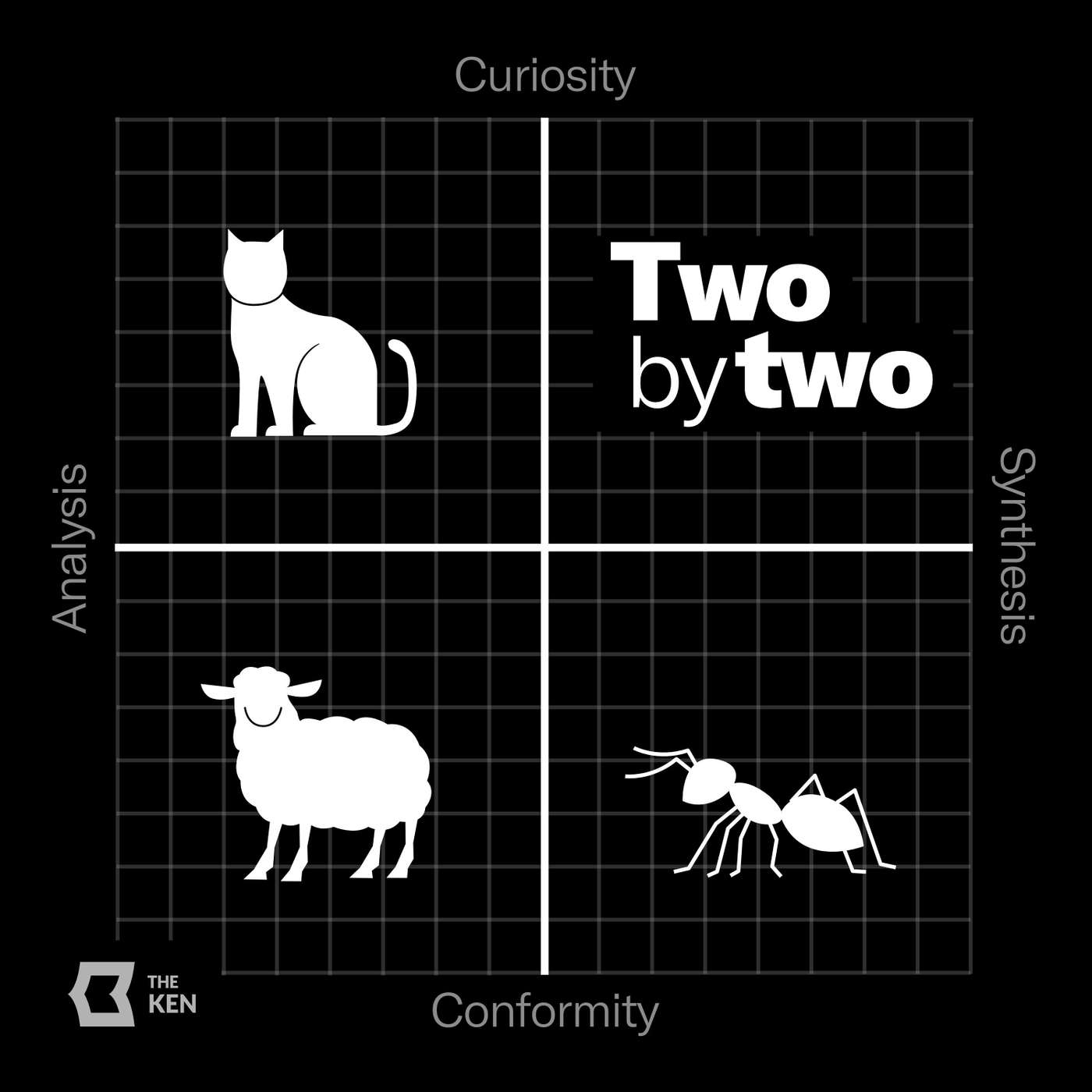

Two by Two
The Ken
The Two by Two podcast is a premium business podcast from The Ken that investigates, discusses and breaks down the most important business stories around you.
Hosted from The Ken's newsroom by business journalists Rohin Dharmakumar and Praveen Gopal Krishnan, Two by Two will feature guests and experts from across the industry and academia to talk about issues no one else is talking about.
Hosted from The Ken's newsroom by business journalists Rohin Dharmakumar and Praveen Gopal Krishnan, Two by Two will feature guests and experts from across the industry and academia to talk about issues no one else is talking about.
Episodes
Mentioned books

Oct 31, 2024 • 3min
Happy Deepavali!
Celebrate Deepavali with the team as they dive into the joy of the festival, emphasizing the importance of embracing its spirit responsibly. They reflect on memorable moments from past discussions and encourage listeners to share their thoughts for future content. The conversation also touches on Netflix's strategy to capture the Indian market, showcasing the dynamic interplay of culture and business. A delightful mix of festivities and insightful dialogue awaits!


